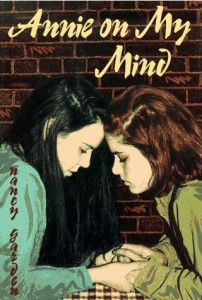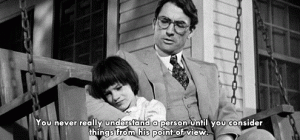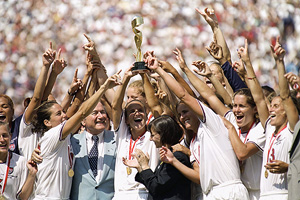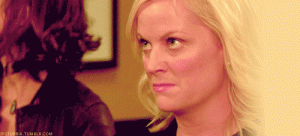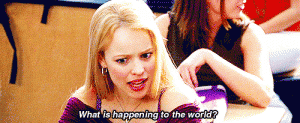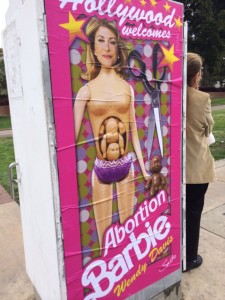 I’ve felt a quiet void ever sense I’ve left New York, and I’m not quite sure what shape it’s in and what could possibly fill it. I’ve been asked several times from friends and family and acquaintances how New York was, and all I can say is “it was great.” Then their expectant eyes look at me for more, and I start spewing things I’ve done and things I’ve learned in this weirdly condensed form because I can’t fathom a way to articulate what this summer was for me. “I learned about the necessity of feminism. I learned how the system is broken and how people knowingly and unknowingly walk over the glass and do not see a problem with it. I toured an abortion clinic, and though I learned the necessity in choice, it took days for the tension in my chest to finally unclench itself. I saw Cabaret on Broadway, and while it was sexual and speculator and grand, it showed me that we popularize the things that can destroy us. I used to feel guilty when I passed by people asking for change without acknowledging their existence, and by the end, I stopped feeling one sort of guilty and completely felt another. I worked for a nonprofit that dealt with street harassment and learned how the lewd policing of bodies has been so normalized in our culture that we’ve trivialized the same fear that a mouse senses when it sees a cat jus
I’ve felt a quiet void ever sense I’ve left New York, and I’m not quite sure what shape it’s in and what could possibly fill it. I’ve been asked several times from friends and family and acquaintances how New York was, and all I can say is “it was great.” Then their expectant eyes look at me for more, and I start spewing things I’ve done and things I’ve learned in this weirdly condensed form because I can’t fathom a way to articulate what this summer was for me. “I learned about the necessity of feminism. I learned how the system is broken and how people knowingly and unknowingly walk over the glass and do not see a problem with it. I toured an abortion clinic, and though I learned the necessity in choice, it took days for the tension in my chest to finally unclench itself. I saw Cabaret on Broadway, and while it was sexual and speculator and grand, it showed me that we popularize the things that can destroy us. I used to feel guilty when I passed by people asking for change without acknowledging their existence, and by the end, I stopped feeling one sort of guilty and completely felt another. I worked for a nonprofit that dealt with street harassment and learned how the lewd policing of bodies has been so normalized in our culture that we’ve trivialized the same fear that a mouse senses when it sees a cat jus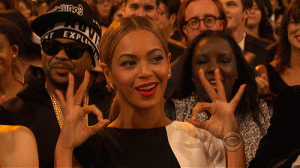 t because of gender and orientation. Oh, and I got to see the Beyoncé and Jay-Z concert for free.”
t because of gender and orientation. Oh, and I got to see the Beyoncé and Jay-Z concert for free.”
But this isn’t what they want to hear.
They want to hear a watered down version of how rewarding the summer was for me with a sprinkle of internship rhetoric and a dash of the New York-y tasks I’ve completed. They want to hear about my struggles on the subway system because the prison industrial complex doesn’t contain adorable anecdotes of my taking the wrong train. They want to hear about how expensive every thing is without acknowledging the people who work for over forty hours a week in the city and who can’t afford the luxury of a daily bagel. They want to hear if I saw the Statue of Liberty but don’t want to hear about the immigrants in the city who hide in fear and wait and wait for the promises of freedom the Statue of Liberty represents to save them from deportation.
They want to hear a pluck of a string and called it Beethoven.
And with enough repetitions, I’ll have a neat answer that appeases the curiosity of those who ask, while feeling a frustration of not expressing myself in the capacity I want because timing and etiquette triumph over rocking the boat. And with enough time and repetitions, I won’t feel this frustration at all. But that’s okay, because what I’ve learned this summer will manifest itself in more natural ways than being shoe horned in a response about how much I liked The Moxie Project. It’ll manifest itself in ways that I can and cannot pinpoint. I can already see it in the ways that I hold conversations with people, in the ways that I’ve become critical and sometimes pleasantly surprised by the television shows I marathon on Netflix, and I can see it in the diva like way I say “Bye” whenever I’m fed up with a person.

While I might forget the details of some the group discussions we’ve had (like what are the complexities in the relationship among neoliberalism, capitalism, and sexual violence?) and the events we went to (like what exactly happened during the Private Violence screening reception?), the experiences I’ve had this summer will always be with me in some shape or fashion.
Sometimes, New York seems like faraway dream, and I go about my day with the residue of it clinging to my skin, telling me that it’s a sin to have learned what I have learned and not do anything profound with it. Asking me constantly what I’m going to do to contribute to the movement in both action and solidarity. That something grand happened while I was in New York, and I’ll never experience that same spark again.
I’m back at the Duke, and it feels jarring being back in the Gothic Wonderland. The students haven’t moved back in yet, and I’m sure it’ll feel even stranger when they do. However, when I saw the familiar buildings of East Campus yesterday, I felt a challenge in the air. That now that I’m back, how can I help change Duke for the better in however small or grand a way? I’m not sure how yet, but I know I have developed enough moxie this summer to find out.





